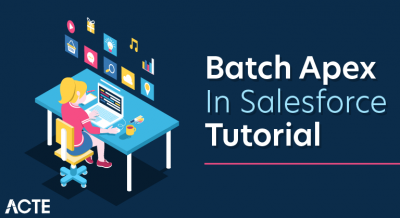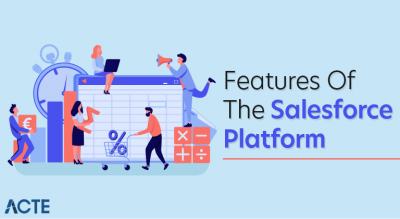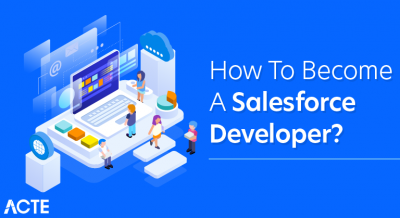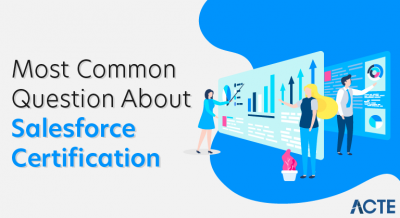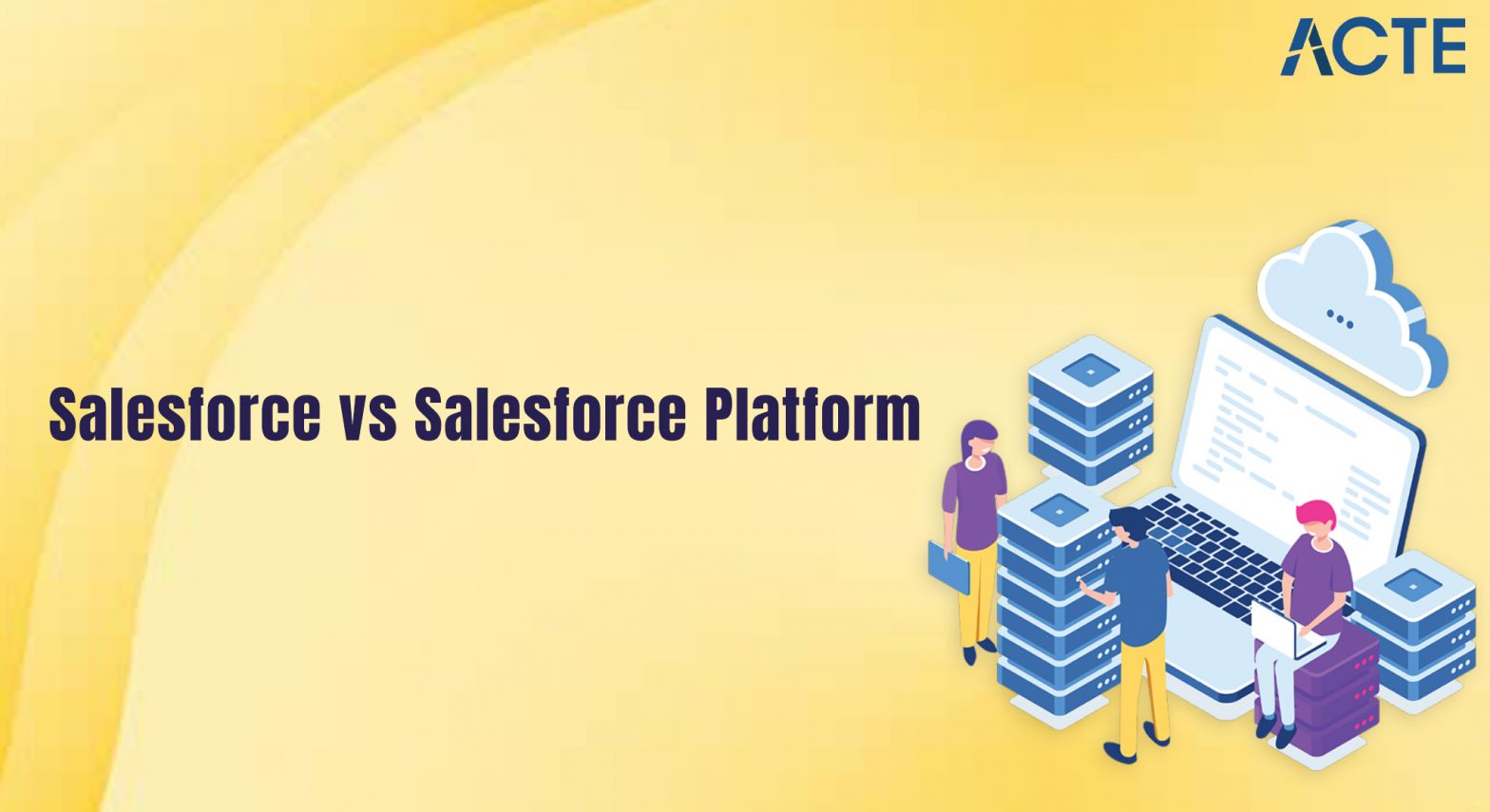
- Introduction
- Understanding Salesforce
- Understanding Salesforce Platform
- Salesforce vs. Salesforce Platform: Key Differences
- Salesforce: A Comprehensive CRM Solution
- Salesforce Platform: A Developer’s Playground
- When to Use Salesforce vs. Salesforce Platform
- Conclusion
Introduction
Salesforce is a leading customer relationship management (CRM) platform, widely used by businesses to manage their sales, marketing, and customer service operations. However, within the Salesforce ecosystem, there is often confusion between Salesforce (the product) and the Salesforce Platform, as they serve distinct purposes. Salesforce, the product, refers to the CRM solution that provides out-of-the-box tools and features designed to help organizations manage customer relationships, track sales leads, and support service operations. It comes with pre-built applications like Salesforce Training , Service Cloud, and Marketing Cloud to address specific business needs. On the other hand, the Salesforce Platform refers to the underlying platform that powers Salesforce. It provides a set of tools and services for developers to build custom applications, extend Salesforce’s capabilities, and integrate with other systems. It includes features like Apex (a programming language), Visualforce (for creating custom user interfaces), and Lightning (a component-based framework). The Salesforce Platform is ideal for organizations that want to customize their Salesforce environment, build custom apps, and automate business processes. Understanding these differences will help you decide whether to leverage Salesforce’s out-of-the-box functionality or build custom solutions on the Salesforce Platform.
To Explore Salesforce in Depth, Check Out Our Comprehensive Salesforce Training To Gain Insights From Our Experts!
Understanding Salesforce
Salesforce is a cloud-based software solution designed to help businesses manage customer relationships, streamline operations, and boost productivity. While its initial focus was on customer relationship management (CRM), Salesforce has since evolved into a comprehensive suite of tools that support sales, marketing, customer service, analytics, and more. As a fully managed service, Salesforce offers a wide range of features accessible through a unified platform, enabling users to perform critical business functions without the need for extensive technical knowledge. Its intuitive interface and built-in Future Method in Salesforce tools make it easy for teams to implement and scale their operations. At its core, Salesforce provides robust CRM capabilities, allowing organizations to manage interactions across sales, marketing, and service channels. Sales Cloud helps businesses streamline and manage their sales processes, while Service Cloud enhances customer support operations with tools for case tracking and service automation.
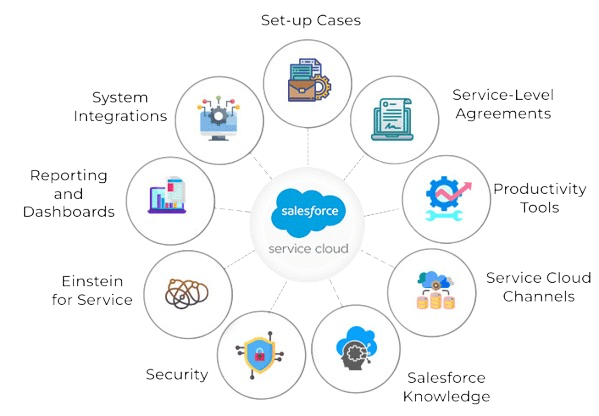
Marketing Cloud enables users to create personalized marketing campaigns, automate outreach, and engage customers across multiple channels. Analytics Cloud offers powerful business intelligence features for data analysis and visualization. Additionally, AppExchange, Salesforce’s marketplace, gives users access to thousands of third-party applications to extend functionality. Together, these tools make Salesforce a dynamic and scalable solution for businesses of all sizes.
Understanding Salesforce Platform
- Custom Application Development: The Salesforce Platform allows businesses to create custom applications without the need for traditional coding. It offers tools like Apex and Visualforce.
- Scalability: Built on Salesforce’s cloud infrastructure, the platform is highly scalable, making it suitable for businesses of all sizes, from small enterprises to large corporations.
- Integration Capabilities: The Aggregate Queries in Salesforce enables seamless integration with other Salesforce applications and third-party systems through APIs and connectors.
- Automation Tools: Salesforce provides automation tools like Flow and Process Builder to help automate business processes, enhancing efficiency and reducing manual effort.
- AppExchange: The Salesforce AppExchange offers a marketplace for third-party apps, providing additional functionality to meet specific business requirements.
- Security: With built-in security features, the Salesforce Platform ensures that your data is protected, meeting compliance standards.
- Custom Workflows: Users can create custom workflows and business logic, tailoring the platform to their business operations, and improving productivity across teams.
- Salesforce is a comprehensive CRM tool that helps organizations manage customer data, sales, service, marketing, and analytics.
- Salesforce Platform is a development environment that allows businesses and developers to create custom applications and automate processes within the Salesforce ecosystem.
- Salesforce is about end-users managing and interacting with CRM data, while the Salesforce Platform is primarily for developers and businesses building applications or extending the Salesforce CRM’s capabilities.
- Salesforce is aimed at business users, Salesforce Training teams, marketing professionals, and customer service reps who need tools to manage and optimize customer relationships.
- Salesforce Platform is intended for developers who need to build custom applications, integrations, and extensions of the Salesforce ecosystem.
- Salesforce is best for organizations looking for a CRM solution to handle sales, marketing, and customer service with minimal customization.
- Salesforce Platform is ideal for businesses needing custom solutions, such as building unique applications, automating specific business processes, or integrating Salesforce with external systems.
- Complete Customization: Build apps and workflows that are entirely tailored to your business needs.
- Scalability for Apps: The platform can scale to handle the growing demands of custom applications.
- Integration Capabilities: Easily integrate with third-party tools, including non-Salesforce apps.
- Access to Powerful Tools: Use Apex, Visualforce, and SObject in Salesforce to build advanced applications.
- Security and Compliance: Built on top of the secure Salesforce infrastructure, ensuring compliance with industry standards.
- Steep Learning Curve: Requires developers with knowledge of programming languages such as Apex.
- Time-Consuming: Developing and deploying custom applications can be time-consuming.
- Maintenance: Custom applications require ongoing maintenance and support.
Do You Want to Learn More About Salesforce? Get Info From Our Salesforce Training Today!
Salesforce vs. Salesforce Platform: Key Differences
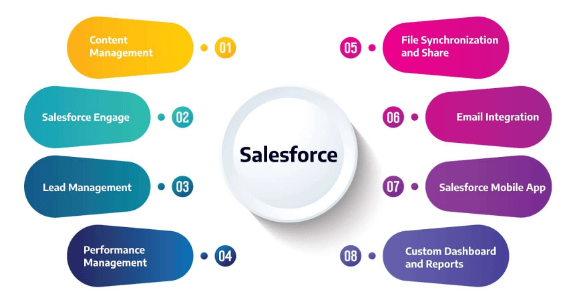
Salesforce: A Comprehensive CRM Solution
Salesforce is a comprehensive cloud-based Customer Relationship Management (CRM) solution designed to help businesses streamline their sales, marketing, and customer service operations. As one of the leading CRM platforms, Salesforce offers a wide range of features that enable organizations to manage their entire customer lifecycle, from prospecting and sales to post-sale service and support. With its user-friendly interface, businesses can track customer interactions, manage leads, and monitor sales pipelines in real-time. Salesforce’s suite includes a variety of powerful tools such as Sales Cloud, which helps sales teams manage leads and opportunities, and Service Cloud, which enhances customer support by enabling agents to resolve cases quickly and efficiently. The Marketing Cloud provides automation tools for creating Benefits of Using Vlocity in Salesforce CRM campaigns, while the Analytics Cloud helps businesses analyze data to gain actionable insights. Additionally, Salesforce integrates with other tools and third-party applications, allowing businesses to expand its functionality. Because it’s cloud-based, Salesforce eliminates the need for businesses to maintain on-premise infrastructure, reducing IT overhead. Its scalability and customization options make it suitable for businesses of all sizes, from startups to large enterprises. Whether you’re looking to automate your processes, improve customer relationships, or gain actionable insights, Salesforce offers a robust and versatile CRM solution.
Would You Like to Know More About Salesforce? Sign Up For Our Salesforce Training Now!
Salesforce Platform: A Developer’s Playground
When to Use Salesforce vs. Salesforce Platform
When deciding between Salesforce and the Salesforce Platform, the choice largely depends on your business’s needs. Salesforce is ideal if your business requires an out-of-the-box CRM system to manage customer relationships, sales, and service with minimal customization. It’s perfect for small and medium-sized businesses looking to get started quickly without a significant technical burden. Salesforce provides pre-built tools like Sales Cloud, Service Cloud, and Marketing Cloud that can be implemented right away. In contrast, the Salesforce Platform is more suitable for businesses with unique requirements that cannot be fulfilled by the standard Salesforce features. If you SAAS vs PAAS in Salesforce to create custom applications, design complex workflows, or integrate with external systems, the Salesforce Platform offers flexibility. This option is particularly beneficial for large enterprises or organizations that require highly specialized solutions tailored to their operations. A medium-sized sales team uses Salesforce to manage leads, track opportunities, and offer customer support through Service Cloud. A large enterprise builds a custom app to process sales orders, integrating with external systems and Salesforce data.
Want to Learn About Salesforce? Explore Our Salesforce Interview Questions and Answers Featuring the Most Frequently Asked Questions in Job Interviews.
Conclusion
Understanding the distinction between Salesforce and the Salesforce Platform is essential for businesses aiming to maximize the power of Salesforce’s suite of tools. Salesforce is a comprehensive, ready-to-use CRM solution designed to manage customer relationships across sales, service, and marketing. It provides out-of-the-box functionality that allows businesses to quickly set up and begin managing customer interactions, sales pipelines, and support requests with minimal customization. This makes Salesforce ideal for organizations that need a robust CRM system without extensive development work. On the Salesforce Training , the Salesforce Platform is a highly flexible and scalable environment specifically designed for developers. It allows businesses to create custom applications, extend Salesforce functionality, and integrate third-party systems. This platform includes tools like Apex (a programming language), Visualforce (for custom UI development), and Lightning (a framework for building apps). If your business requires highly customized workflows, unique business logic, or tailored integrations, the Salesforce Platform provides the necessary tools to meet those demands. In essence, Salesforce is great for those looking for a quick, effective CRM, while the Salesforce Platform is the best choice for businesses needing a highly customizable solution that evolves with their needs.

